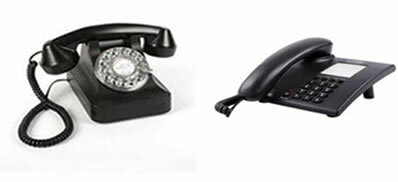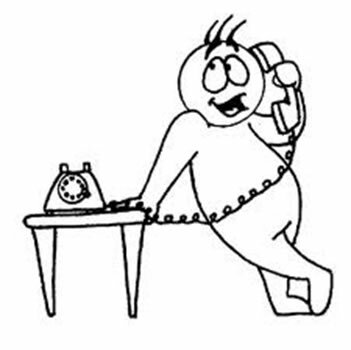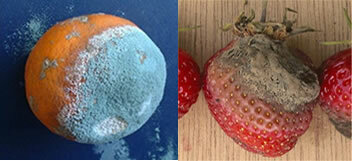Some people believe that the inventor of the telephone was the Scotsman Alexander Graham Bell, in year 1876, but for other people the real inventor was the Italian Antonio Meucci, in the year of 1860. Leaving the discussions of who actually invented the telephone aside, we have to admit that the telephone was one of the most amazing inventions ever created.
Through this device we can communicate with anyone anywhere in the world, just dial a few numbers. But do you know how a phone works?

Do you know how a phone works?
The telephone is one of the simplest devices we have in our house. It is made up of three basic parts: a switch, also called a hook, that turns on when you take the phone off the hook; a speaker, which is where we listen; and the microphone, which is where we talk. The most modern phones have doorbells (which are used to produce a pleasant sound) and keypads (which are used to dial numbers).

Over time, telephone devices became more modern.
The telephone network is made up of wires and cables. All along the street is a very thick cable made up of several pairs of copper wires. Each pair of copper wires connects to our homes, and there these wires are connected to each telephone point.
When we make a connection, the information is taken through electrical signals, through copper wires, to a digital hub. In it, the digitization of your voice takes place, combining it with several other voices. Along with the other voices, these signals are carried to the telephone company through a fiber optic cable. At the telephone company, your line is connected to a line card so you can hear the dial tone when making a call.

Through the telephone it is possible for a person to talk to another person anywhere in the world.
As society evolved, other types of telephones were invented, such as cordless telephones, cell phones, telephones using wireless signals. radio, and other technologies, which, associated with telephone lines, made people's lives more practical, such as caller ID, fax machines, among others.
By Paula Louredo
Graduated in Biology


